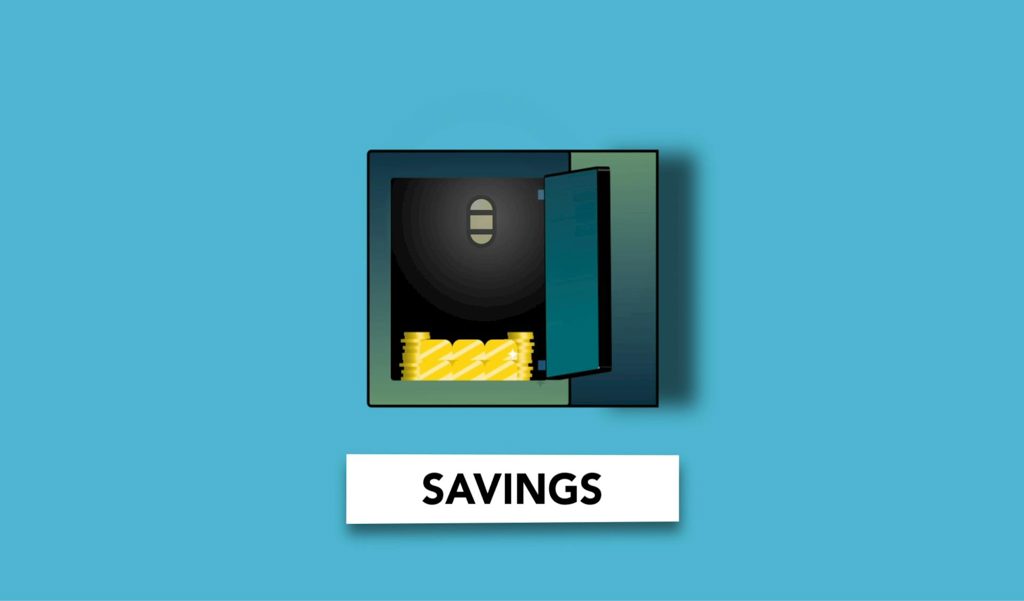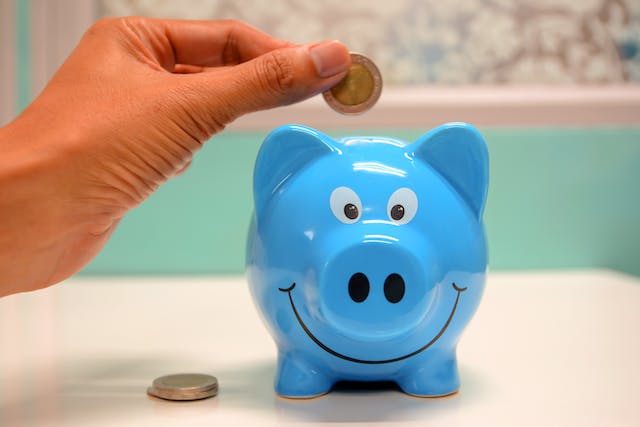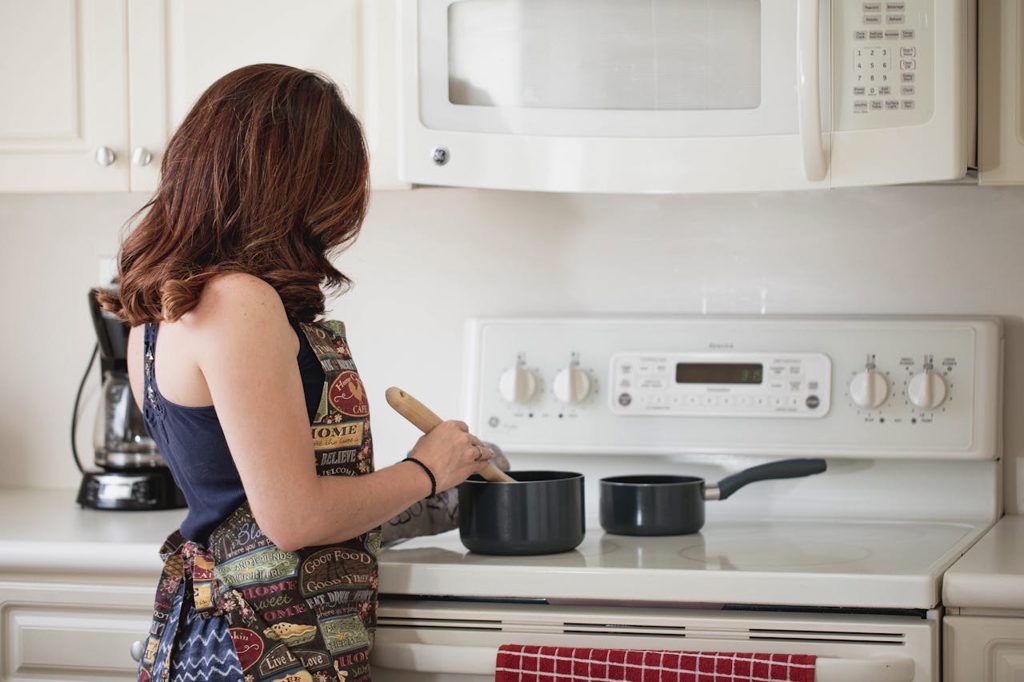Storage and the Psychology of Delayed Gratification in Budgeting
Renauld Smith • 10 Nov, 2025

Saving money
often feels harder than spending it. The pull of quick pleasure can easily
overshadow long-term goals. Yet learning to pause before spending is one of the
strongest habits you can build. It helps you make clearer decisions, reduce
stress, and feel more secure about your finances.
That is where
delayed gratification in budgeting plays a major role. It means choosing future
rewards over instant comfort. Storing cash, setting limits, or holding off on a
purchase are all small acts that build patience. Over time, those choices
reshape how you handle money and bring a deeper sense of control and confidence.
The Link Between Storage and Saving
Storage is more
than just a place to put things away — it’s a reflection of how you manage your
space and your finances. The same principles that guide physical organization
can also shape better financial habits. When you store items efficiently,
you’re practicing foresight and discipline — the same qualities that help you
save and plan ahead.
Learning how to
cut costs on storage services can also help you make wiser choices about how you use your money. Choosing the
right unit size prevents overpaying for unused space, while decluttering
reduces what you need to store in the first place. Packing smartly helps you
maximize every inch of your unit, and taking advantage of seasonal discounts or
long-term rental deals can lower your monthly expenses. These small, practical
steps not only simplify storage but also encourage a mindset of intentional
spending and consistent saving. Over time, that balance between what you keep and
what you let go of can create lasting financial stability and peace of mind.
The Science Behind Delayed Gratification in Budgeting
The idea of
waiting for a better reward has deep roots in psychology. One well-known
example is the “marshmallow experiment,” where children could eat one treat
immediately or wait to earn two. Those who waited often showed stronger
self-control later in life, linking patience with success in many areas.
The same
principle applies to money. Choosing to save instead of spend triggers the same
mental process as waiting for that second marshmallow. Your brain weighs
short-term pleasure against future gain. Each time you decide to hold off on
spending, you strengthen your ability to wait for larger rewards.
Studies also show that people who practice patience in small ways—such as saving a set amount each week—tend to reach long-term goals faster. The habit of delaying reward rewires your thinking, making it easier to resist quick spending and stay focused on what truly matters.

Saving even a
little each week strengthens your ability to wait for bigger rewards.
How Budgeting Shapes Your Decisions
Budgeting acts
like a roadmap for your money. It shows exactly where your funds go and
highlights areas where you can save. When you create a plan, spending becomes a
choice rather than a reaction. You can see the bigger picture and avoid
impulsive decisions that might derail your goals.
Practicing
delayed gratification in budgeting turns waiting into action. For example,
skipping small daily treats allows you to save for a larger goal, like a
vacation or a new gadget. Tracking progress motivates you because each saved
dollar becomes proof of your self-control.
Tools like simple
spreadsheets, apps, or envelopes make budgeting easier. They store information
and help you plan without overwhelming effort. With a clear system, choosing to
wait for bigger rewards feels natural instead of restrictive.
Storage Strategies That Support Patience
Waiting for
rewards becomes easier when you organize your savings. One approach is creating labeled accounts or
envelopes for specific goals, such as travel, emergencies, or a future
purchase. Seeing your money divided this way makes progress tangible and
motivates you to stick with it.
Keeping funds
separate from your main spending account also reduces temptation. Less
accessible savings act as a buffer against impulse decisions. Automated
transfers add another layer, moving money without effort and removing the
temptation to spend first. Visual reminders, like a chart or jar, can reinforce
the habit and make progress feel rewarding.

Delayed gratification in
budgeting begins by simply splitting your money into separate envelopes.
Emotional Triggers That Undermine Saving
Spending is often
driven by emotions rather than need. Stress, boredom, or social pressure can
make you reach for purchases without thinking. Even small triggers like
scrolling through online stores can lead to instant gratification and weaken
your saving habits.
Storage and clear
budgeting act as shields against these impulses. Keeping money in separate
accounts or visual savings jars creates a pause between urge and action. This
pause gives your brain a moment to decide if the purchase is necessary, helping
you avoid regret later.
Simple techniques
can also help you manage emotional spending. Waiting 24 hours before buying,
removing saved payment information, or tracking your progress can reduce
impulsive choices. Over time, recognizing triggers strengthens your control and
makes patience a natural response to temptation.
Building a Mindset of “Stored Reward”
Saving can feel
more rewarding when you view it as storing value for the future. Each dollar
set aside is a small victory, a step closer to your goals. This mindset shifts
focus from immediate pleasure to long-term satisfaction, making waiting feel
purposeful rather than frustrating.
Celebrating
milestones along the way reinforces this approach. Hitting a monthly saving
target or paying off a small debt shows progress and motivates you to continue.
Over time, consistent storage creates confidence with money and makes delayed
rewards feel natural, turning patience into a positive habit rather than a
sacrifice.
Turning Waiting Into a Daily Skill
Patience can be
strengthened like a muscle through small daily habits. Simple choices like waiting before making a
snack or delaying an online purchase by a day teach your brain to pause before
acting. These tiny exercises carry over into financial decisions, making it
easier to save.
Daily routines can reinforce delayed gratification without feeling like a chore. Cooking meals instead of eating out, walking short distances, or postponing impulse buys all train your self-control. Waiting becomes easier and more automatic, turning patience into a practical skill that benefits both money management and everyday life.

Cooking your own meals
instead of eating out saves money and strengthens self-control.
Patience Pays: How Storage Makes Saving Feel Natural
Storing money
changes how you see value and choice. Each step to separate, label, or protect
your savings builds confidence and makes careful spending feel rewarding. Small
wins like resisting an impulse buy or adding to a savings jar create a sense of
progress that motivates you to keep going.
Using delayed gratification in budgeting turns patience into a clear advantage. Planning, storing, and waiting make every financial decision intentional. You feel more control, less stress, and greater security, showing that simple acts of patience can have a meaningful impact on your money.
Photos used:
https://www.pexels.com/photo/cutout-paper-composition-of-safe-with-coins-5849590/
https://www.pexels.com/photo/person-putting-coin-in-a-piggy-bank-1602726/
https://www.pexels.com/photo/person-wearing-a-sweater-putting-money-inside-an-envelope-5899173/
https://www.pexels.com/photo/woman-in-the-kitchen-cooking-2890387/





